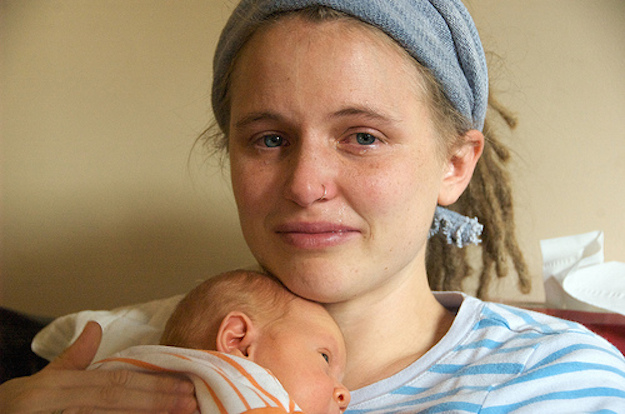This article is the first of a series of articles where I will talk about post-partum depression. During my time as counsellor at Vita Nova Counselling Centre I come into contact with allot of woman who, after I asked, “Did/do you think it’s possible that you have/had post-partum depression?” starts to shake or cry. Many of them look at me and ask “What do you mean”? I look at them and think “why did that question make you so uncomfortable/sad? Why do you look so guilty? Sometimes they will tell me, “yes, I did have post-partum depression and it was treated.” Some woman cry and say “I’m not sure”. By these examples it is safe to assume that post-partum depression is a very difficult/sensitive topic for woman/or other family members to talk about. The one emotion I always observe in these women is guilt. They feel so unbelievably guilty that they are/where not happy during a time they were “supposed” to be happy. I believe that post-partum depression is a very sensitive and confusing topic and most couples don’t know how to admit, diagnose and treat it – thus naming it the silent sadness.
Most women feel extremely guilty about having/had post-partum depression. Because post-partum depression can be such a sensitive and complicated topic to talk about I’m doing to break it up and talk about it during a series of articles. These articles are not just for mothers but also for fathers so that they can understand and support their wives/partners better. Other family members might benefit from reading this as well. I really hope that these articles will help you understand this silent sadness that nobody talks about and that you can understand that post-partum depression is not uncommon, it’s treatable and it’s not your fault. During the first article I will talk about what post-partum depression is and how to recognise it?
Most people expect the arrival of a new baby as a happy event, a blessing and in most cases that is true. But as a new mom having a baby comes with some fears and this can cause some anxiety that moms either deny or they don’t talk about. Moms might go through a short period of anxiety and tearfulness which is known as “the baby blues”. These feelings usually go away within about two weeks. If however moms develop a more intense and deeper depression, this is known as post-partum depression.
Post-partum depression is a depressive mood disorder that can affect 10-15 in 100 women. It is almost impossible to predict but it’s treatable. The symptoms of post-partum depression might be similar to normal depressive symptoms, for example low mood, feeling distressed or guilty, thus not always easy to diagnose. Mothers who experience partum-depression experience feelings of extreme sadness, anxiety and exhaustion that make it difficult for them to complete daily care activities for themselves and others.
Post-partum depression usually sets in soon after childbirth and develops gradually over a period of several months. But it can also come on suddenly, and in some women, the first signs don’t appear until months after they’ve given birth (it can be up to a year). Because of the severity of the symptoms, moms with post-partum depression usually require treatment (both medically and therapeutically).
This concludes part one of the series on post-partum depression. During the next article I will go into woman who might be at risk of getting post-partum depression and the specific symptoms assigned to post-partum depression to help you identify if you might be at risk of having post-partum depression or if you might have post-partum depression already. Please remember to never self-diagnose. If you have doubts or worries go and see a medical professional before taking any risks. I’m looking forward to sharing more information with you next time.


